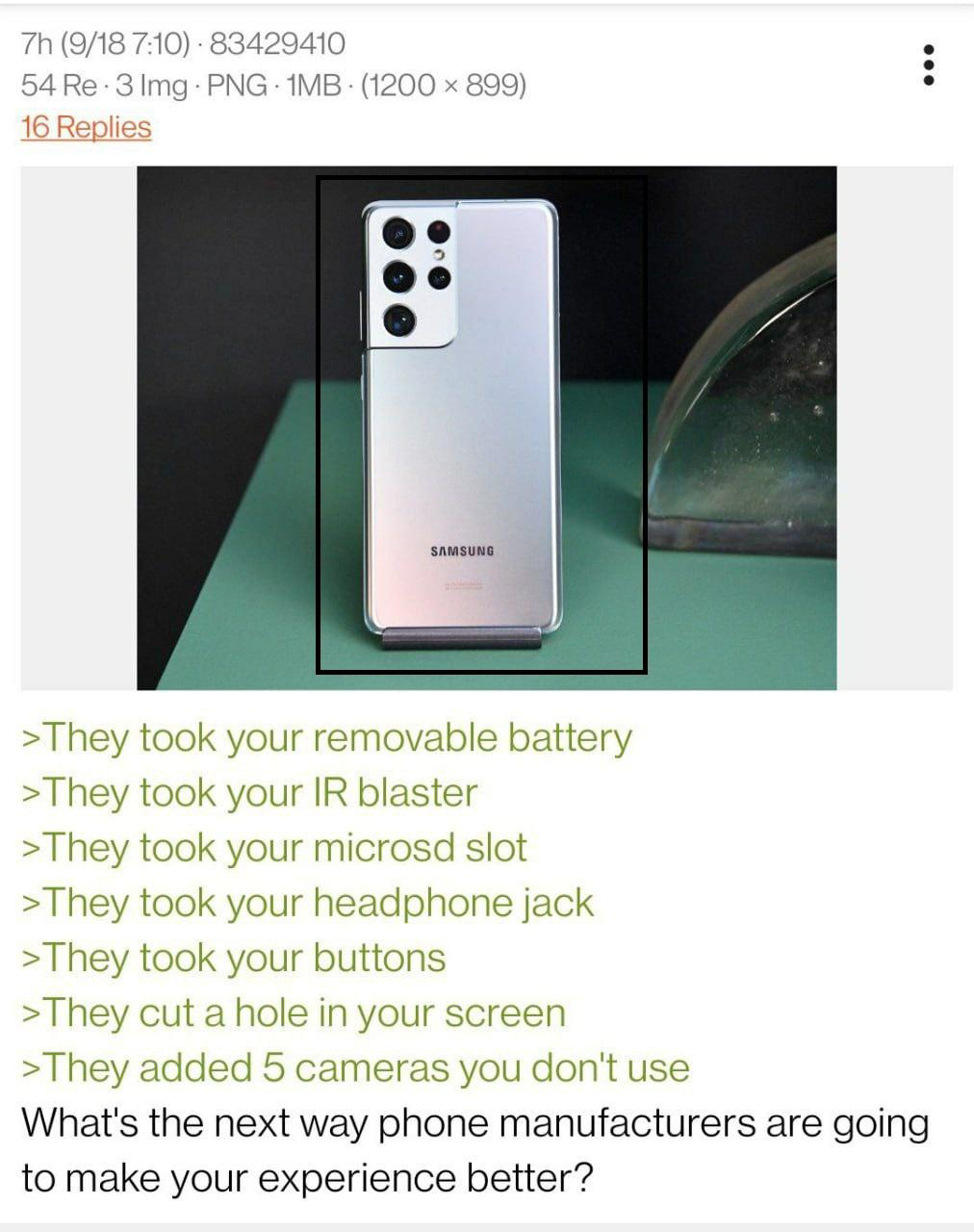this post was submitted on 14 Jan 2024
1442 points (97.4% liked)
Greentext
5618 readers
3023 users here now
This is a place to share greentexts and witness the confounding life of Anon. If you're new to the Greentext community, think of it as a sort of zoo with Anon as the main attraction.
Be warned:
- Anon is often crazy.
- Anon is often depressed.
- Anon frequently shares thoughts that are immature, offensive, or incomprehensible.
If you find yourself getting angry (or god forbid, agreeing) with something Anon has said, you might be doing it wrong.
founded 1 year ago
MODERATORS
you are viewing a single comment's thread
view the rest of the comments
view the rest of the comments

OLED displays have obsoleted notification LEDs. And phones with physical keyboards don't sell.
OLED displays certainly could, but there is no baked it app that wakes up the screen only if you have a message, blink in different colors or frequencies depending on the message and use the low power always on display api.
Yeah, you can glance at your always on display and make out the little symbol. But that's not an adequate replacement to the notification LED. If I had to guess, it was removed to drive up engagement with your phone.
No they don't.
Also, keyboard phones don't sell because they don't make good ones.
I wouldn't call the "always on display" some kind of innovative technology that makes notification LEDs obsolete... AOD is a battery draining complement to notification LEDs, not a replacement -- we just don't have the latter anymore because of corporate greed and consumer mentalities :/
There are notification apps to replicate the feature. A single pixel lighting on an OLED screen uses no more energy than a physically separate led. The CPU isn't sleeping to update the notification led either way.
Appreciate the response. Figured this was "easily" do-able, but I honestly remember not being able to find anything pre-implemented for this a couple years ago when I last checked. Maybe my search, then, idk... Anyways, yeah, physically separate LED do sound a lot more obsolete with that in mind